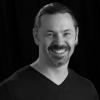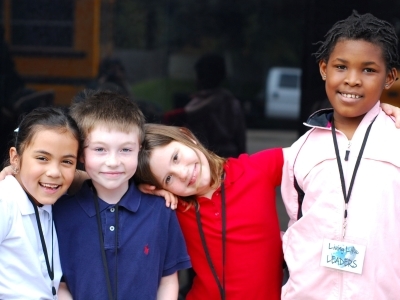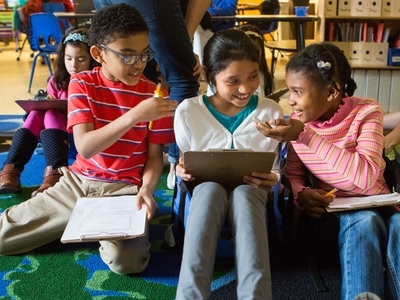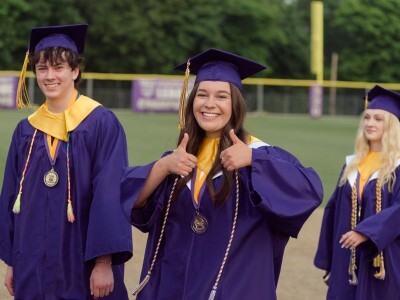Rethinking Wayfinding
Topics

Today’s learners face a rapidly changing world that demands far different skills than were needed in the past. We also know much more about how student learning actually happens and what supports high-quality learning experiences. Our collective future depends on how well young people prepare for the challenges and opportunities of 21st-century life.
How can schools best prepare youth for the future? Instead of setting long-term plans, developing Wayfinding Abilities is about match-finding, a matter of experience more than planning.
I was predisposed to like everything about David Epstein’s book, Range: Why Generalists Triumph in a Specialized World. Right out of the gate, he questions the cult of 10,000 hours, our cultural fixation with early specialization. He correctly notes that the work we ask students to do in school is mostly about finding the right answer (through various forms of multiple choice) and minimizing struggle, even when that struggle is necessary to deepen understanding. He stresses the importance of being able to “sample” different kinds of work and experience to figure out what we like and are good at doing (an idea that is foundational to the way we design ninth and tenth grade at the Workshop School in Philadelphia). He thoughtfully interrogates the idea of grit, pointing out that sometimes it is eminently rational to stop doing something. (It has always bothered me that the education reform establishment has turned grit from a combination of perseverance and passion into grinding, soulless determination to no discernible end, something we have oddly decided to call “character.”)
My first “read” of the book was actually listening to it on a long road trip this summer, and I literally cheered along as Epstein shared research and anecdotes that supported my deeply held beliefs and suppositions.
Then I got to chapter seven, “Flirting with Your Possible Selves,” and things got a little more complicated. The basic point of the chapter is this: most of the ways that we think about long-term planning and goal setting are worthless, and this is especially true if we’re talking about younger people.
People are more successful (and happier) when they find the right type of work, in the right setting, for their skills and interests. The key question, then, is how does one find the right match?
My favorite thing about NGLC’s MyWays framework is the domain called “Wayfinding Abilities.” Wayfinding Abilities are all of the habits and skills you need to get big things done in life. How do you build and use your social network? How do you identify programs or institutions that can help you and get access to the resources you need? What happens when a plan falls apart or a door closes? When I think about the ten years it took us to make the Workshop School a reality, the most important set of skills we needed could be called wayfinding. The same goes for a first-generation college student, an immigrant family applying for legal resident status, or an entrepreneur looking for start-up funding.
At best, schools teach wayfinding tacitly; most don’t teach it at all. At the Workshop School, we’re making a conscious, deliberate effort to design for, teach, and assess this set of skills. When we started this process, we borrowed heavily from the college and career prep playbook. As part of a project called “What’s Next,” our seniors take a battery of assessments like the Gallup StrengthsFinder; learn about different careers and career paths; and reflect on their past experiences to identify times or situations when they felt engaged, inspired, or successful. All of this culminates in a kind of vision board where students show where they want to be five years from now and then lay out the path to get there.
This approach to prepare seniors for the future seems intuitive, an academic version of the “what do you want to be when you grow up” question. It’s also mostly wrong.
At the center of Epstein’s argument in Range is the economic concept of “match quality.” It is what it sounds like: people are more successful (and happier) when they find the right type of work, in the right setting, for their skills and interests. The key question, then, is how does one find the right match?
Here’s how it doesn’t happen: It doesn’t happen by taking a bunch of surveys that try to tell you what careers should interest you. It doesn’t happen by saying you want to be an engineer ten years from now and making a long-term plan that you doggedly follow, even though you have no real sense of what an engineer actually does. It doesn’t happen by declaring as a middle school student that you want to go to Princeton, Berkeley, or Penn State without knowing why you’d go to any of those places or what purpose it would serve.
Match quality is about experience. Quoting London Business School professor Herminia Ibarra, Epstein writes:
“We discover possibilities by doing, by trying new activities, building new networks, finding new role models. We learn who we are in practice, not in theory.” (p, 161)
Wayfinding, then, is about match-finding and thus a matter of experience more than planning. This doesn’t mean flitting from diversion to diversion. If it is to be edifying, experience needs to be deep and immersive and accompanied by disciplined reflection. All of this suggests that instead of asking students to think about long-term goals, we should really be focusing on their next steps.
There is still a place for the long view in this process. To focus on next steps, students need to know what they are stepping toward. But the emphasis should be on doing that next step deeply and well, and then reflecting on the experience. What worked? What didn’t? What lessons were learned, and how can they be applied to future experiences? The long-term goal may stay the same over time, but it could also change as students make decisions about each next step experience. My friend and co-founder Simon Hauger is an engineer by training, but through his co-op experience at Drexel University, he realized very quickly that it wasn’t the work he wanted to do. Through lived experience, his goals shifted. And as Epstein compellingly argues, Simon’s story is more the norm than the exception.
As I begin to rethink wayfinding, I’m rethinking the whole notion of college or career “pathways.” That term implies a set course, but in reality, students are navigating a complex web of pathways. Sometimes they may go off the path altogether and will need to, in the words of Miles Horton and Paulo Freire, “make the road by walking.” Wayfinding is the set of skills they need to chart their own course.
Photo by pixelcreatures.




